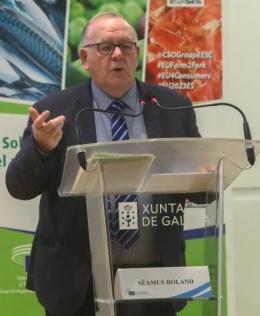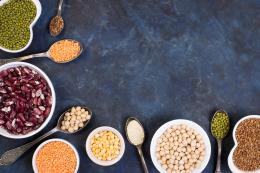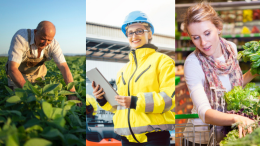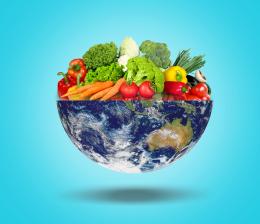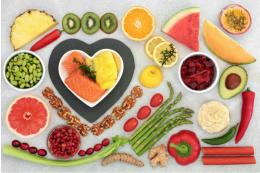European Economic
and Social Committee
Zrównoważona gospodarka żywnościowa
Żywność jest centralnym aspektem naszego życia i stanowi nieodzowną część kultury europejskiej. Zarazem to, co spożywamy, sposób wytwarzania żywności oraz jej marnowanie ma ogromny wpływ na zdrowie ludzi, zasoby naturalne i całe społeczeństwo:
- Obywatele – a w szczególności dzieci – w coraz większym stopniu cierpią na nadwagę i otyłość z powodu niezdrowej diety.
- Rolnicy i pracownicy sektora spożywczego nie otrzymują sprawiedliwej ceny za swoje produkty.
- W całym łańcuchu żywnościowym traci się lub marnuje jedną trzecią żywności.
- Destrukcyjne metody produkcji żywności i konsumpcji odbijają się na środowisku w postaci zmiany klimatu, utraty różnorodności biologicznej, zanieczyszczenia powietrza i wody, degradacji gleby itp.
Pandemia COVID-19 to sygnał alarmowy, by to zmienić. Okazało się, że realizacja koncepcji „od pola do stołu” nie jest wcale oczywista, a rolnictwo i cały system żywnościowy opierają się na wzajemnych powiązaniach różnych podmiotów i działań. Teraz bardziej niż kiedykolwiek potrzebne są sprawiedliwe, zasobooszczędne, sprzyjające włączeniu społecznemu i zrównoważone łańcuchy dostaw w całym sektorze rolnictwa i rybołówstwa oraz w sektorze spożywczym, aby zapewnić równe korzyści obywatelom, rolnikom, pracownikom i przedsiębiorstwom.
EKES od lat niestrudzenie domaga się zrównoważonej i całościowej polityki żywnościowej. Takie zintegrowane i systemowe podejście jest niezbędne dla sprostania wielorakim i wzajemnie powiązanym wyzwaniom, które mają wpływ na systemy żywnościowe, dla zapewnienia stabilności gospodarczej, środowiskowej i społeczno-kulturowej, dla integracji i spójności w różnych obszarach polityki (takich jak rolnictwo, środowisko, zdrowie, edukacja, handel, gospodarka, technologia itp.) oraz dla promowania współpracy na różnych szczeblach sprawowania rządów.
